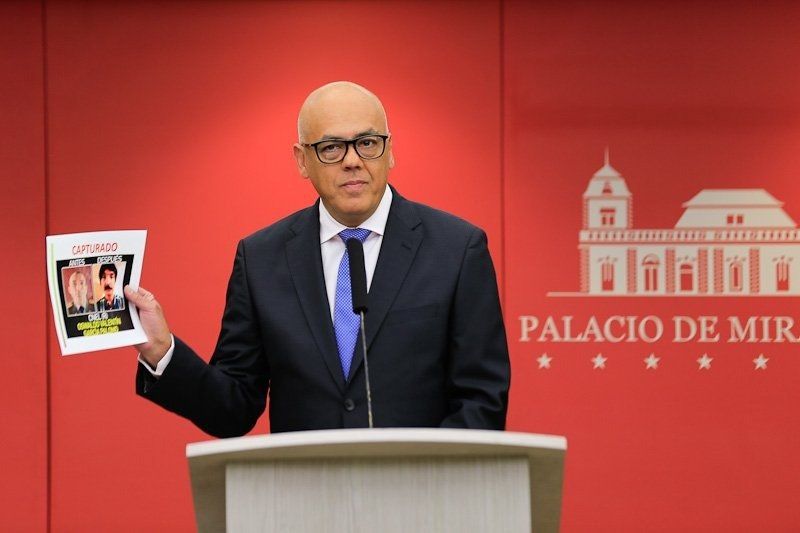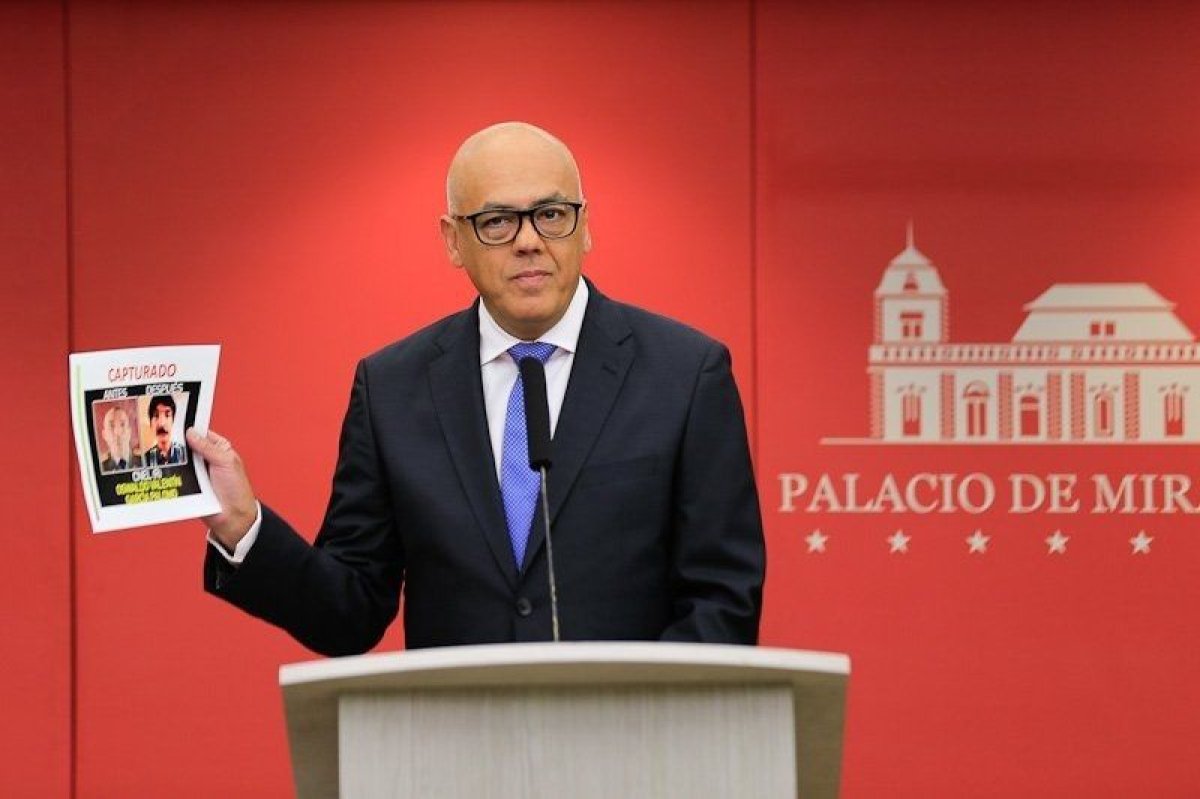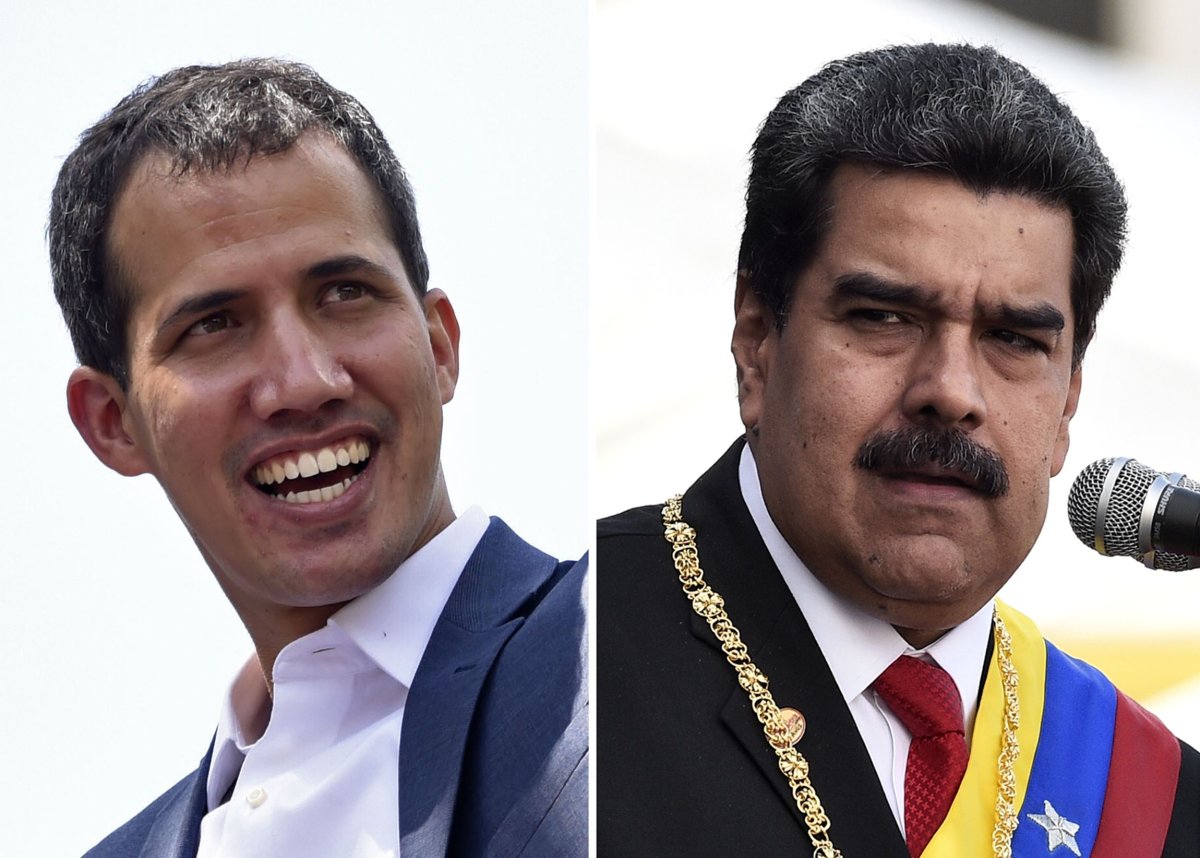
Venezuela has claimed to have unveiled a mass conspiracy involving military personnel and politicians trying to unseat the country's government by force, as well as plans of potential U.S. military action.
Venezuelan Communications Minister Jorge Rodriguez has alleged that Julio Borges, an opposition politician and former head of the National Assembly, was behind both a failed 2014 coup and an assassination attempt last August against Venezuelan President Nicolás Maduro. The information was allegedly gathered by confessions from recently-arrested Colonel Oswaldo García, who was behind another unsuccessful conspiracy to unseat Maduro last year and was seen confessing on video during Thursday's conference.
The latest unrest came amid another challenge to Maduro's power after current National Assembly leader Juan Guaidó declared himself the legitimate president in a move recognized by the U.S. and a number of its allies in the region and abroad. President Donald Trump's administration has pressured Maduro to step down via tighter economic restrictions.
Maduro has instead rallied his troops, who remain supportive of the government. Trump has also repeatedly warned that "all options are on the table," including military action and Rodriguez said Thursday that García "confesses that U.S. officials were planning a military operation against Venezuela in 2019," as cited by the Venezuelan Ministry of the Interior, Justice and Peace's official Twitter account.

García was captured last Wednesday after having quietly re-entered the country at some point after his escape last year. Rodriguez said that the ex-colonel had traveled to Washington on multiple occasions and held further meetings regarding plans to overthrow Maduro in Brazil, Chile and Colombia. Upon his arrest, he was allegedly found in possession of contraband incriminating him in a new conspiracy and admitted to plotting a military coup on behalf of Colombia and the U.S.
Along with Borges, who has been named Guaidó's envoy to the pro-opposition Lima Group that consists of 12 nations in the Americas, García had allegedly made contact with Parsifal De Sola, a prominent Venezuelan entrepreneur, and former Colombian President Juan Manuel Santos, who Rodriguez implicated in what the Venezuelan government has called a U.S.-backed coup in 2014. García's link to Borges was said to be Fernando Albán, a prominent opposition member who died in October in a case officially ruled as a suicide, but widely decried among government critics as a state-sanctioned killing.
Also implicated by García's confessions were Osman Delgado, a Miami resident who stands accused of being "one of the financiers of the terrorist teams tasked with carrying out the frustrated assassination attempt," and Lieutenant-Colonel Ovidio Carrasco, the communications chief of Maduro's own presidential guard. Carrasco was arrested Monday on suspicion of passing information to the U.S. and Rodriguez said Thursday that he "betrayed his military status and was recruited by Julio Borges to facilitate the assassination of President Nicolás Maduro."
Carrasco was said to have confessed as well and "directly linked" Borges to planning the August attempt on Maduro's life via two explosive drones at a military rally, according to Rodriguez. He added, "A murderer like Borges must give up his hypocrisy: What will he say now that his accomplices have given him up?"

Amid the backdrop of the political crisis in Venezuela, was a failing economy hit by historic hyperinflation and persistent accusations that Maduro's government had committed human rights abuses and rigged last May's elections, which the opposition boycotted. Maduro has portrayed the dispute as U.S.-backed attempt to depose his government, as he has previous anti-government movements in 2018, 2014 and 2002, when a coup reportedly linked to the CIA targeted his predecessor, Hugo Chávez.
Elliott Abrams, one of the alleged U.S. collaborators with opposition figures supporting that coup, was appointed last month as Trump's special envoy to Venezuela. The diplomat previously served under former President Ronald Reagan before being sentenced and later pardoned for his role in the 1980s Iran-Contra scandal that saw the U.S. secretly selling weapons to Iran during its war with Iraq in exchange for funds to support the counterrevolutionary militias battling the socialist Sandinistas of Nicaragua, one episode in a decades-long history of Washington attempting to suppress leftist movements in Latin America.
The ongoing feud between claimants to Venezuela's presidency has divided the international community. The government was backed by fellow socialist-led Latin American states Bolivia, Cuba, El Salvador and Nicaragua, as well as Dominica, Suriname, Saint Kitts, Nevis, Saint Vincent and the Grenadines in the Caribbean. Maduro was also supported from abroad by those including Belarus, China, Cambodia, Equatorial Guinea, Iran, North Korea, the Palestinian government, Russia, Serbia, South Africa, Syria and Turkey.
Meanwhile, nearly every other Latin American state supported the opposition, as did others including the U.S., most of the EU, Albania, Australia, Georgia, Kosovo, Israel and Morocco. Maduro was also still recognized by Mexico and Uruguay, which have offered to host talks set to begin Thursday.
Uncommon Knowledge
Newsweek is committed to challenging conventional wisdom and finding connections in the search for common ground.
Newsweek is committed to challenging conventional wisdom and finding connections in the search for common ground.
About the writer
Based in his hometown of Staten Island, New York City, Tom O'Connor is an award-winning Senior Writer of Foreign Policy ... Read more
To read how Newsweek uses AI as a newsroom tool, Click here.








